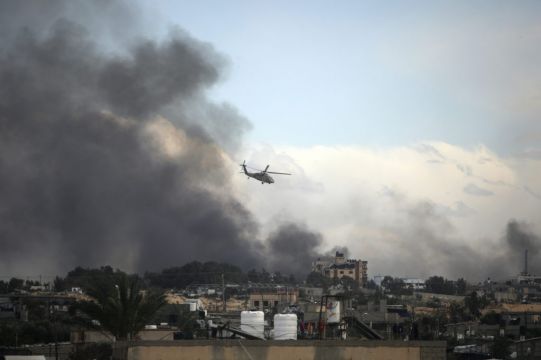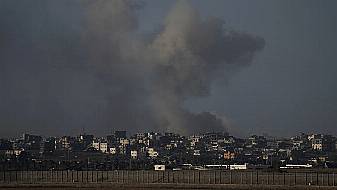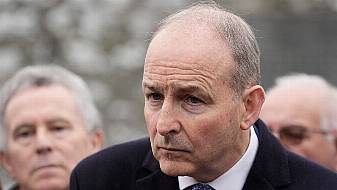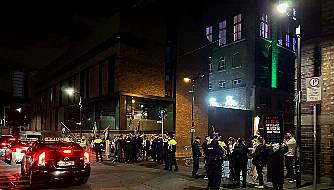Five patients in intensive care died because their oxygen supply was cut off when Israeli troops stormed Gaza’s main hospital, doctors have said.
Troops were searching the facility, where the Israeli military said it believes the remains of hostages abducted by Hamas might be located.
The raid came after troops had besieged Nasser Hospital in the southern city of Khan Younis for nearly a week, with staff, patients and others inside struggling under heavy fire and dwindling supplies, including food and water.
The Israeli military said on Friday it had detained dozens from the facility, including some it alleged were involved in the Hamas’ October 7 attack on Israel.
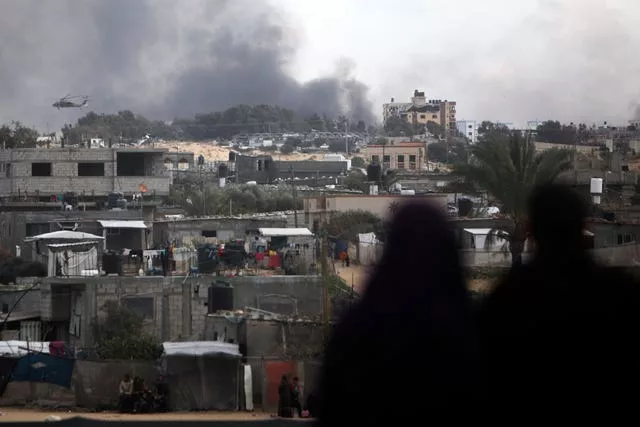
Hours before troops seized the hospital Thursday, Israeli fire killed a patient and wounded six others inside the complex, staff said.
Negotiations over a ceasefire in Gaza, meanwhile, appear to have stalled, and Israeli Prime Minister Benjamin Netanyahu on Friday pushed back hard against the US vision for after the war – particularly its calls for the creation of a Palestinian state.
After speaking overnight with President Joe Biden, Mr Netanyahu wrote on X, formerly Twitter, that Israel will not accept “international dictates regarding a permanent settlement with the Palestinians”.
He said that if other countries unilaterally recognise a Palestinian state, it would give a “reward to terrorism.” Mr Netanyahu has repeatedly rejected creation of a Palestinian state.
Mr Netanyahu has vowed to continue the offensive and expand it to the Gaza city of Rafah, near Egypt, until Hamas is destroyed and scores of hostages taken during the militants’ October 7 attack are freed.
In their phone call, President Biden again cautioned Mr Netanyahu against moving forward with a military operation in Rafah before coming up with a “credible and executable plan” to ensure the safety of Palestinian civilians, the White House said.

Two Israeli airstrikes on Rafah overnight killed at least 13 people, including nine members of the same family, according to hospital officials and relatives.
With the war showing no sign of ending, the risk of a broader conflict grew as Israel and Lebanon’s Hezbollah militant group had deadliest exchange of fire along the border since the start of the Israel-Hamas war.
Israel launched airstrikes into southern Lebanon for a second day on Thursday after killing 10 civilians and three Hezbollah fighters on Wednesday in response to a rocket attack that killed an Israeli soldier and wounded several others.
The war began when Hamas militants on October 7 burst out of Gaza and attacked several Israeli communities, killing some 1,200 people and taking another 250 hostage.
More than 100 captives were freed during a cease-fire in November in exchange for 240 Palestinian prisoners. About 130 hostages remain in Gaza, a quarter of whom are believed to be dead.

Israel responded to the Hamas attack with one of the deadliest and most destructive military campaigns in recent history.
At least 28,663 Palestinians have been killed, mostly women and children, and more than 68,000 wounded, according to Gaza’s Health Ministry, which does not distinguish between civilians and combatants.
Some 80% of the population has been driven from their homes, and a quarter are starving amid a worsening humanitarian catastrophe.
Large areas in northern Gaza, the first target of the offensive, have been completely destroyed.
